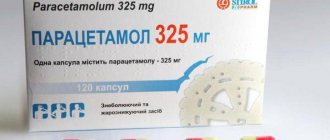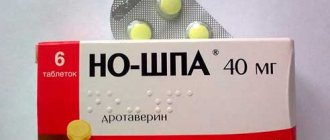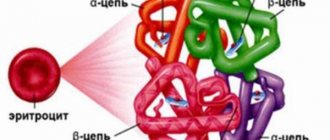Description
Aspirin is a drug whose main advantage is its low price.
The drug is produced in the form of white tablets; they contain acetylsalicylic acid. Some use the product for its intended purpose - taken orally, others crush tablets and apply to damaged areas of the skin to reduce itching, inflammation, discomfort and pain.
In addition, many women use Aspirin as a component of a facial scrub and hair mask. But the main effect of the drug is to relieve inflammation. The medicine inhibits the activity of the enzymes that cause it. Is Aspirin used for high blood pressure? Many people recommend it because it thins the blood, thereby lowering blood pressure.
Properties of the drug
A big misconception is the idea that inexpensive drugs have little effect on the body and are absolutely safe to use. If there are no particular complaints about the second statement, then you can argue about the first one.
The main effect of aspirin is to dilate blood vessels and thin the blood. It was thanks to him that he became so popular.
To understand what effect the drug has on blood pressure, whether it can increase or decrease, it is important to know its properties. Aspirin is a non-steroidal non-narcotic analgesic that has anti-inflammatory properties.
Acetylsalicylic acid has an antipyretic, analgesic and antiaggregation effect on the body. This is due to the ability of aspirin to suppress the activity of enzymes that are responsible for the synthesis of mediators of inflammatory processes, they are called prostaglandins in medical terminology.
Without the ability to develop, inflammation stops and then disappears completely. Aspirin’s ability to influence points in the brain helps relieve pain and restore normal thermoregulation.
The pain goes away when the active substance thins the blood and the blood vessels in the brain dilate. Due to the drug's ability to prevent the development of blood clots as a result of platelet aggregation, it is prescribed for the prevention of thrombosis.
But aspirin is also prescribed to people with cataracts or constant headaches, and even to reduce the risk of miscarriage, but it is not clear how the drug helps in the fight against high blood pressure.
Whether aspirin increases or decreases blood pressure remains to be seen.
In what cases can Aspirin help?
Today, the pharmaceutical market offers dozens, if not hundreds, of drugs that are just variants of the same drug - Aspirin. The name of the drug may be different, but a literate consumer will definitely pay attention to its composition. If its leading component is designated as acetylsalicylic acid, then this is aspirin, well known to everyone from childhood, which can truly be considered as a multifunctional agent due to its main ability to thin the blood:
- the drug has a beneficial effect on the condition of blood vessels - by dilating them, it resists the formation of blood clots, that is, it indirectly helps a person avoid a heart attack and stroke;
- it affects body temperature - dilated vessels give off heat faster, so the temperature drops;
- relieves pain of various types - joint, muscle, neuralgic, dental, as it is able to block pain-causing substances in the body and influence the central nervous system;
- blocks inflammatory processes - thanks to dilated blood vessels, blood flows faster to problem areas, which accelerates the process of cell regeneration;
- eliminates swelling;
- Some doctors claim that regular use of Aspirin can help in the fight against cancer, or at least reduce the risk of their occurrence.
It should be noted that there is no need to rely on Aspirin as an independent painkiller and anti-inflammatory agent in the long term. If this drug can relieve pain or reduce the degree of inflammation, it is only at the initial stage or in combination with other specialized medications.
Does Aspirin Really Relieve Headaches? The answer to this question is clearly positive. But it should be noted that this medicine can only be effective at the early stage of pain. If you catch the pain at the very beginning of its onset, then aspirin for the head is really recommended. It helps with mild pain in every second case, with moderate pain in every fourth case.
But if the headache attacks are prolonged, then you should not rely on this drug. You should also be critical of aspirin as a painkiller if headache is one of the symptoms of any disease. Aspirin only helps with headaches if they are caused by inflammation, a lack of oxygen in the blood, or a hangover. In the latter case, the medicine must be consumed at least eight hours after alcohol.
The risk of heart attack increases significantly with coronary heart disease in people with hypertension. During a heart attack, a cholesterol plaque breaks off from the wall of the vessel. At the site of the rupture, a blood clot begins to form, closing the lumen of the blood vessel. For this reason, the heart muscles are left without nutrition, and the normal functioning of the heart is disrupted. Heart failure affects all organs. First of all, this concerns the brain.
As first aid for a heart attack, it is recommended to take 1 tablet of aspirin. The tablet must be chewed and swallowed. This gives:
- the possibility of dissolving a blood clot, which will lead to minimal damage from a heart attack;
- blood clotting will decrease, which will prevent the clot from growing to a volume that blocks the lumen in the vessel.
How does Aspirin affect blood pressure?
Does Aspirin Increase or Lower Blood Pressure? It is important to understand that this drug does not directly affect the mechanisms that are responsible for blood pressure levels. However, Aspirin has the ability to thin the blood, providing it with sufficient permeability. The medicine is often prescribed to patients with heart and vascular diseases.
It is forbidden to prescribe Aspirin on your own. The dosage is selected only by the doctor individually, taking into account the disease, weight and age.
This thinning agent is taken to prevent strokes and heart attacks. Remember that this drug reduces blood pressure only in certain cases.
For example, if you take a pill at night, your blood pressure will drop, but if you take it during the day, there may not be a positive effect.
Acetylsalicylic acid relieves pain, migraines, suppresses headaches, and eliminates excess tension. It is advisable to take Aspirin for patients with diseases of the cardiovascular system whose symptoms are pronounced. If you do not suffer from these diseases, then you cannot lower your blood pressure with this remedy.
Is Aspirin used for hypertension?
As mentioned earlier, the blood pressure does not change from using Aspirin, but these tablets are necessary for a person even during a hypertensive attack. Then they affect the body as follows:
- Relieve pain in the head caused by vasoconstriction.
- Normalizes body temperature.
- They thin the blood to ensure stable blood flow inside the narrowed vessels.
- Reduce the risk of blood clots leading to death.
It was blood thinning that brought Aspirin particular popularity. The tablets affect the entire hematopoietic system and do not allow platelets to form into blood clots, as a result of which blood flow in the vessels of the head, arteries and veins is normalized.
After conducting numerous studies, doctors have proven that the pills will not work on a healthy person, but they will have an effect on people with heart and vascular diseases. “Aspirin” for high blood pressure will have a positive effect on the entire vascular system and will ease the course of the disease, reducing the risk of instant death.
Contraindications
For kidney diseases. Chronic pyelonephritis or renal failure are a absolute contraindication to the use of ASA in large quantities.
Contraindications to aspirin include:
- problems with blood circulation;
- incoagulability of blood. This drug is strictly contraindicated for people with this disease;
- bronchial asthma. In some cases, its use can cause attacks of bronchial asthma;
- pregnant women and children under twelve years of age;
- stomach diseases: ulcers, gastritis, high acidity. ASA has a bad effect on the stomach, having a destructive effect on its walls. Even healthy people should use this drug very carefully and always with food in the stomach to reduce the risk of damage. People who have problems with the gastrointestinal tract may be advised to take ASA in the form of injections or by placing it under the tongue without swallowing;
- allergy to the drug.
Compliance with these rules prevents all sorts of complications from taking the drug.

Does Aspirin Increase Blood Pressure or Not? Those suffering from it say no. However, the drug should be used carefully. So, in what cases is this drug taken?
- Painful sensations in joints and muscles.
- Backache.
- Headache and toothache.
- Inflammation.
- Infectious diseases.
- Acne (externally).
- Increased oily skin (external use).
- Fever, high body temperature.
- Hypertension.
So, Aspirin really helps with high blood pressure. But it is important to follow the instructions for use.
If Aspirin really helps with blood pressure, then in what cases is it prohibited to use it? It is strictly unacceptable for patients who:
- liver and kidney diseases were diagnosed;
- there is an allergic reaction to the components of the drug, there is intolerance to other drugs;
- gastritis and other diseases of the gastrointestinal tract;
- bronchial asthma.
It is unacceptable to drink Aspirin during pregnancy, breastfeeding, or at the same time as caffeine-containing medications. It is also prohibited for children under twelve years of age.
The action of Aspirin - real and mythological help?
Many people perceive Aspirin as a universal pill that can save almost all health problems. It is no coincidence that this medicine is an invariable component of any first aid kit. Fortunately, a lot of experience has been accumulated in using the drug - it has been on the pharmaceutical market for over 100 years. True, people do not always understand that just because a pharmaceutical product is inexpensive and accessible, this does not mean that it is equally harmless and safe.
The basis of Aspirin is acetylsalicylic acid, which, when used correctly, can really help a person if he needs to lower his temperature, or relieve, for example, muscle pain, or even relieve a hangover. But often this drug is also held responsible as a means of prevention. How often you can take Aspirin, how appropriate and safe it is, depends on the health status of each individual patient.
Adverse reactions
As mentioned above, aspirin is not recommended for use by children under twelve years of age. This is not based on the fact that their body may not be able to cope with the elimination of this drug, but on a slightly more serious factor.
Taking the drug for a cold, in combination with others, can lead to the development of Reye's syndrome.
This disease is accompanied by disorders of the brain and liver, which often leads to death. It is better to give children special medications for children as antipyretics and pain relievers.
Aspirin in high doses can also cause bleeding. They can be both internal and external manifestations. The first group often manifests itself in the gastrointestinal tract and is accompanied by the development of ulcers and other gastrointestinal diseases.
conclusions
Aspirin is the most popular analgesic today.
Acetylsalicylic acid, which is the main component of this drug, is included in many painkillers, antipyretics, anti-inflammatory and blood-thinning drugs, as well as drugs for people with high blood pressure.
On its own, aspirin cannot affect high blood pressure, therefore, taking it directly is useless for reducing blood pressure.
But, it should be noted that this drug significantly increases the effectiveness of other drugs, since it dilates blood vessels and makes the blood more fluid.
In special cases where high blood pressure creates multiple blood clots, blocking the blood path, ASA is prescribed as a drug that can dissolve blood clots. In this case, we can say that acetylsalicylic acid is effective against high blood pressure.
Features of taking Aspirin
Aspirin, according to popular belief, is a harmless drug. But even it can cause harm if you don’t take a few simple rules into account when taking it:
- Aspirin can play a positive role in case of high blood pressure, if hypertension is mild, and then it does not play a direct role, but indirectly, so it is better to lower or increase blood pressure with other medications.
- It is not recommended to take aspirin on an ongoing basis for people who have been diagnosed with liver disease, kidney disease, or ulcers in the gastrointestinal tract, as the acid can further damage the mucous membranes of the digestive system.
- A contraindication for taking aspirin is the patient's low blood clotting ability.
- Taking Aspirin for preventive purposes to reduce blood clots is indicated only for those who actually have the appropriate medical recommendation, and for healthy people this drug will not be a panacea.
In general, Aspirin, like any other medicine, should be taken as recommended by your doctor. You should not trust your own ideas about proper treatment. In particular, cinema tells us from time to time that all Americans do is drink Aspirin from morning to evening and thereby ensure stable health.
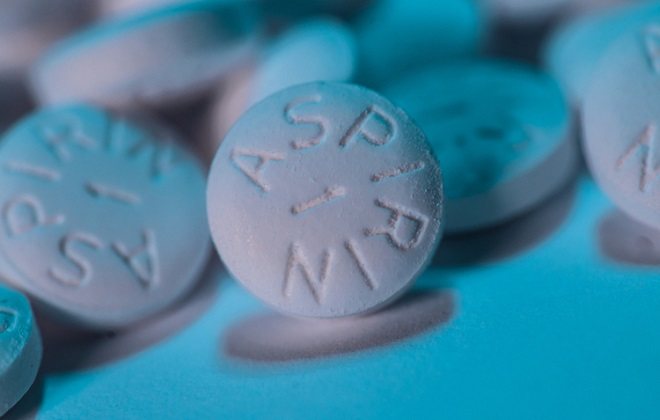
What does Aspirin do - lower or increase blood pressure, and why is it prescribed for hypertension? Patients with high blood pressure are indeed often prescribed Aspirin Cardio, Aspecard or Cardiomagnyl. In some cases, you can get by with regular Aspirin, which is used to treat colds.
How will Aspirin help with blood pressure?
Will Aspirin help if your blood pressure is high? The active ingredient in Aspirin is acetylsalicylic acid. Thanks to acetylsalicylic acid it is possible to:
- reduce pain;
- relieve headache;
- lower body temperature to normal;
- reduce the likelihood of blood clots.
It is the latter property that has brought Aspirin wide popularity as a prophylactic agent in the treatment of heart and vascular diseases.
Small doses of Aspirin that older people take daily can significantly reduce the likelihood of blood clots not only in large arteries and veins, but also in the vessels of the brain. However, recent studies have shown that the positive effect is observed only in those patients who already have cardiovascular diseases.
Regular use of Aspirin by healthy people does not lead to good health. Therefore, Aspirin is prescribed only for diseases in which the formation of blood clots can pose a fatal danger. A small dose of acetylsalicylic acid is sufficient to influence platelet aggregation.
- after myocardial infarction;
- in case of cerebral circulatory disorders;
- with atherosclerosis.
In some cases, Aspirin is prescribed to prevent heart attack and complications of atherosclerosis. For these purposes, 75-100 mg per day is sufficient. The dosage is selected by the cardiologist individually in each specific case. There is no need to switch to regular use of Aspirin on your own, as there is a risk of complications.
Aspirin, the active substance of which is acetylsalicylic acid, is a non-narcotic non-steroidal anti-inflammatory analgesic.
- This drug helps relieve fever, relieve pain, stop the inflammatory process,
- Acetylsalicylic acid blocks active enzymes that are responsible for the production of substances that cause inflammation. This helps deprive the source of inflammation of recharge, due to which the inflammation quickly decreases and disappears.
- Aspirin is often used in the treatment of rheumatism. Due to the fact that acetylsalicylic acid acts on the points of the brain responsible for regulating temperature and pain, the drug can be taken at elevated temperatures. It also relieves pain.
- The medicine thins the blood, preventing platelets from sticking together. Therefore, with headaches and intracranial pressure, blood vessels dilate, causing pain to go away.
- Doctors often recommend taking Aspirin on an ongoing basis for people prone to developing blood clots, this helps reduce the risk of stroke and heart attack. The same medicine can be taken for migraines.
Release form of the drug
Aspirin can be purchased in pharmacies in tablets of 0.125, 0.25 and 0.5 grams. For the treatment of cardiovascular diseases, there are special forms in minimal dosages.
In addition to regular tablets, Aspirin is sold in the form of effervescent tablets that dissolve in water and are quickly absorbed into the blood. On average, the cost of one package of medicine is 200-350 rubles.
Prices for special forms of the drug depend on the manufacturer and the number of tablets.
Aspirin is used as first aid for a heart attack. To do this, take one tablet of the medicine, which is quickly chewed and swallowed.
Such actions allow you to:
- Dissolve the blood clot, which will allow you to avoid complications during a heart attack as much as possible.
- Reduce blood clotting, so that the existing blood clot cannot grow and completely block the lumen of the vessel.
- Additionally, during a heart attack, Nitroglycerin is taken, which is dissolved or placed under the tongue. This drug is used to lower blood pressure. You can take no more than three tablets at a time.
Instructions for use of "Aspirin"

In cardiology, it is used for the prevention or complex treatment of hypertensive attacks and complications: myocardial infarction, cardiac ischemia, stroke, hypertensive crisis. Also, due to the properties and availability of this medicine, the risk of death of the patient is reduced. To reduce blood pressure, Aspirin is taken with increased blood pressure as follows:
Hypertensive patients will need to take Aspirin as first aid (during attacks). This will stabilize the patient’s condition before the ambulance arrives, namely:
- The medicine will dissolve blood clots, preventing the risk of fatal consequences.
- It will reduce blood clotting, so the resulting blood clot will not be able to expand and create an obstruction to intravascular blood flow.
Any hypertensive complication is accompanied by an increase in intravascular parameters, but acetylsalicylic acid affects the blood, not the vessels. To ease the course of the disease and return blood pressure to normal, the patient will need complex treatment that reduces blood pressure. Suspecting a heart attack, a person needs to take Aspirin (according to the instructions) according to the following scheme:
- 1 Aspirin tablet should be chewed and swallowed quickly.
- Then you need to take 1 tablet of Nitroglycerin. It is taken sublingually (placed under the tongue) and then dissolved. The dosage of this drug can be increased if it does not produce the expected results, but the norm should not be exceeded - 3 tablets.
These measures are taken to maintain the functionality of the body during an attack, but they are not a method of treatment. If your health suddenly deteriorates, you should immediately call an ambulance and be hospitalized to restore the functionality of your internal organs or systems.
Like any other drug, Aspirin can have a negative effect on the body with high blood pressure. Based on this, medication should be taken as needed.
Under what circumstances may side effects occur:
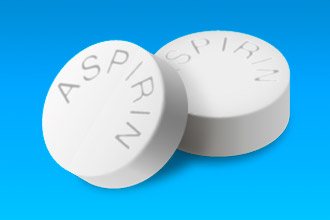
- If you have diseases of the digestive system: ulcers, colitis, gastritis, you should stop using these tablets. The use of this remedy may cause internal bleeding from the damaged area of the digestive tract. As a result of repeated use of these tablets (for gastrointestinal diseases), other ulcerative lesions of the gastric or intestinal wall may appear.
- For asthmatic diseases, taking Aspirin is strictly prohibited. The medicine may cause spasm of the bronchopulmonary system.
- With regular use of tablets by children under 12 years of age, Reye's syndrome may occur, characterized by a decrease in the performance of the liver and brain, up to premature wear of internal organs.
- During pregnancy, the pills may cause bleeding.
If you have such diseases, you should stop taking Aspirin. To prevent the doctor from making a mistake in prescribing medications, you need to promptly tell him about the presence of associated diseases that can cause negative consequences. Then the specialist will select similar products that do not contain acetylsalicylic acid.
Any pharmacological drugs have contraindications, regardless of the cost of the tablets and the colorfulness of the packaging.
“Aspirin” can also have a negative effect on the human body, especially if the patient takes the pills, knowing about the other associated diseases described above.
- Breast-feeding.
- Pregnancy.
- Allergic reaction to acetylsalicylic acid.
Each medicine used by a hypertensive patient must be approved by the attending physician (frequency of administration, dosage). This will reduce the risk of damage to healthy organs and side effects. “Aspirin” is not a universal medicine, but acts exclusively on the hematopoietic system and inflammatory processes occurring in the body. Therefore, if intravascular blood flow is impaired, you need to take Aspirin after identifying the clinical picture of the disease.
Source: cardiograf.com
Why can't Aspirin be taken regularly?
The ability to thin the blood is not always relevant, in some cases it is even dangerous. Constant intake of acetylsalicylic acid negatively affects the composition of the blood, changing its structure. By preventing platelets from sticking together, the drug destroys some of them.
Aspirin is dangerous for people with blood clotting problems; for hemophilia, treatment is possible only in case of emergency, and under the supervision of the attending physician.
The use of the drug is limited to people diagnosed with the following diseases:
- thrombocytopenia;
- hypoprothrombinemia;
- hemorrhagic diathesis;
- low hemoglobin with anemia.
High doses of the drug damage the gastric mucosa and can cause bleeding, therefore aspirin is prohibited for gastritis, ulcerative manifestations, colitis and erosions.
The drug should not be prescribed to pregnant women in the first and last trimester; there is a high risk of internal bleeding, miscarriage or premature birth, especially if the hemoglobin level is low. In addition, it has a detrimental effect on the functioning of the liver and kidneys.
And during the containment period, its high concentration in milk is unacceptable for infants. Aspirin is prescribed to nursing mothers only if there is obvious benefit outweighing the possible risk.
Contraindications for use also include:
- asthma, due to a possible allergic reaction;
- anemia, due to the risk of bleeding;
- endocrine disorders – thyrotoxicosis, hypothyroidism;
- chronic arterial hypertension with fluid retention in the body.
In any case, before prescribing aspirin for the treatment of hypertension, you must undergo an examination and consult with your doctor. Self-medication is unacceptable, as it can lead to serious complications.
“Aspirin” for high blood pressure is taken according to the instructions for use. It is allowed to be taken by children over 15 years of age and adults.
The minimum dosage is 0.5 g at a time, the maximum you can take is 1 gram. The dosage and duration are prescribed by the doctor.
About four hours should pass between doses. If you need to take several tablets a day, then the maximum dose is three grams, but no more.
You also need to take into account the patient's equipment. Take Aspirin after meals with plenty of water.
Effect
Aspirin is considered a harmless medicine, but this is a misconception. If you do not follow all the rules, it can cause the following side effects:
- acid can harm the mucous membranes of the stomach and intestines;
- the strength of the walls of blood vessels will decrease;
- Subcutaneous hemorrhage may form;
- toxicity to the liver and kidneys.
It is forbidden to take aspirin with alcoholic beverages and strong coffee. Aspirin can be used for preventive purposes only if the attending physician gives permission.
Taking Aspirin has the following effects:
- Reduced thrombosis. The effect of the drug is due to the fact that the cyclooxygenase pathway is blocked in the metabolism of arachidonic acid.
- Eliminate pain. Due to a decrease in the level of inflammatory mediators, pain disappears.
- Temperature drop. The area of the hypothalamus, responsible for temperature regulation, is no longer affected by inflammatory mediators due to a decrease in the amount of prostaglandins.
- Reduced pressure. The effect of Aspirin on blood pressure is manifested if you adhere to certain rules for taking the medicine.
The main properties of the drug include an antipyretic effect, a mild analgesic effect, as well as an anti-inflammatory property. Thanks to these qualities, Aspirin quickly copes with the assigned tasks and relieves painful symptoms.
Note. There is also Aspirin Cardio, which is designed specifically for people with cardiovascular pathologies. The drug is often prescribed for hypertension, but not as the main therapy, but as an additional remedy that relieves symptoms.
What do the doctor's say
Is it possible to take Aspirin for high blood pressure? Doctors say that it can be drunk in moderate dosages for hypertension. However, it is prohibited to use it constantly.
If blood clotting is impaired, it is better to avoid Aspirin to reduce blood pressure. In addition, constant medical supervision is required while taking it.
If hypertension is treated with Aspirin, this should be done in combination with other medications.
Doctors remind that with prolonged use, acetylsalicylic acid weakens the gastric mucosa, which can lead to internal bleeding. It is not recommended to use Aspirin for gastritis, ulcers and ulcerative colitis.
